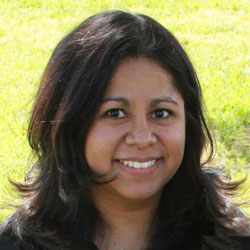Rebecca Dominguez has worked with Catholic Charities for 17 years and is a Senior Program Supervisor for the Foster Care and Adoption program. In addition to supporting foster parents, she is also a foster parent herself.
 Rebecca and her husband began their foster care journey after a conversation with a Department of Child Safety (DCS) worker led them to realize the immense need for foster homes. To date, they’ve fostered 21 children and adopted one child.
Rebecca and her husband began their foster care journey after a conversation with a Department of Child Safety (DCS) worker led them to realize the immense need for foster homes. To date, they’ve fostered 21 children and adopted one child.
Over the years, Rebecca has learned lessons at work and at home about what it means to foster. She shares her knowledge and insight by answering common questions about foster care.
Common Questions about Foster Care
I could never give up a child after fostering them. How do people do it?
Returning a child to their biological family is the hardest part of foster care. You have loved the child, protected them and raised them.
When they go back to their biological family, it can be devastating. But you also need to see that, whether it was for two years or six months, you did an amazing thing. You helped put a family back together and heal their hearts.
How hard is it to get licensed?
Becoming licensed isn’t difficult, but it’s a long, detailed process. There are background checks, home inspections, training and paperwork , but our agency works alongside you to complete it. Remember to be thorough and patient.
How much does it cost to become a foster parent? Do we pay for everything out of pocket? Are there resources?
Foster families must be financially stable to become licensed. A potential foster parent is responsible for making any adjustments to the home needed for licensing.
Once licensed, foster parents receive a stipend from the state to cover the cost of the child. Additional stipends may be available depending on the child's needs.
There are nonprofits and community resources that assist foster families. These resources may help with things like tutoring or recreational activities. Some provide clothing or other personal items.
Can I specify the ages of the kids I want to foster?
You can select an age range, but being open-minded and flexible is encouraged. There’s a tremendous need for foster homes for sibling groups and older kids. Catholic Charities will work with you to find an appropriate age range for your family.
How long will foster children stay with me?
The timeline is very hard to predict. It could be a few months to a few years. The average time in foster care is 15-18 months.
How much contact does a foster family have with a child’s biological family?
The state only requires monthly contact. Contact builds over time at the family’s discretion and comfort level.
“As a foster family, we made an effort to get to know the biological family, so they knew that we were in their corner and wanted to support reunification. It was easier for my family to say goodbye to children who had been in our care because we knew they were going back to family who loved them and had done the work to provide them with a healthy environment,” says Rebecca.
If you’re interested in becoming a foster parent with Catholic Charities, read more about our programs or attend an information session.






